From time to time, we plan to post an in-depth study of an important sampler and hope that you enjoy this one, in honor of Martin Luther King Day
A great rarity, this sampler was made by an 11-year-old free Black girl, Jane Freedom, living in Norfolk, Litchfield County, Connecticut, about 35 miles northwest of Hartford.
The needlework presents relatively simple alphabets and a row of strawberries along the bottom. These were accomplished in the queen’s-stitch, a sophisticated technique that was generally taught only to advanced samplermakers. Remarkably, Jane’s needle is still in her sampler, nearby an incomplete line of stitching at the bottom of the sampler.
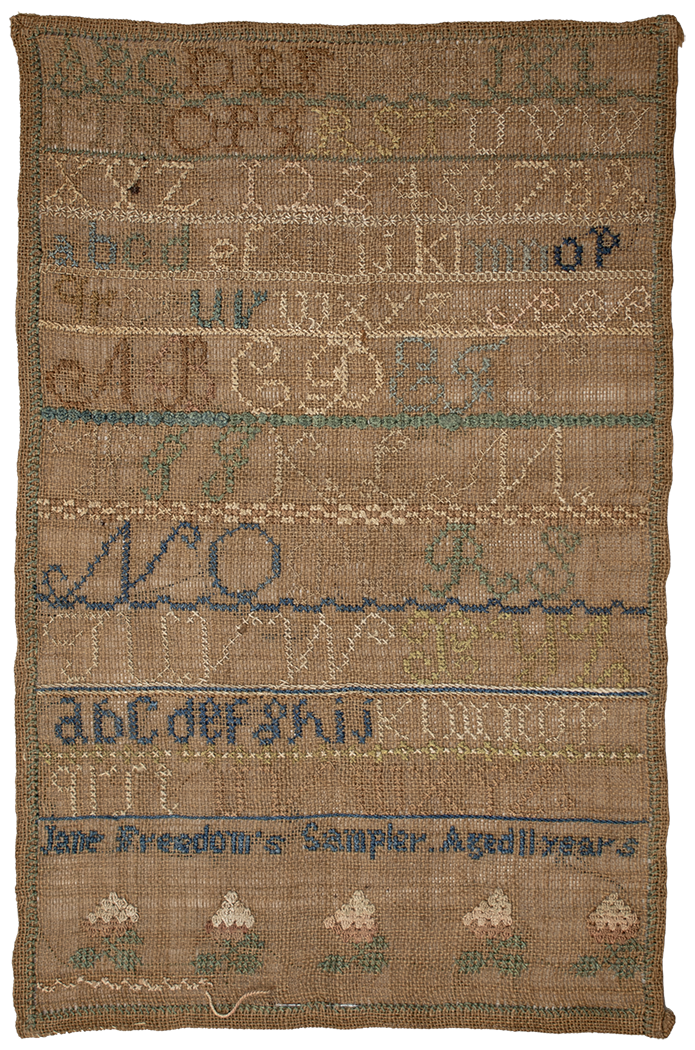
Photo of Jane Freedom's Sampler (above) and detail of included needle (below).
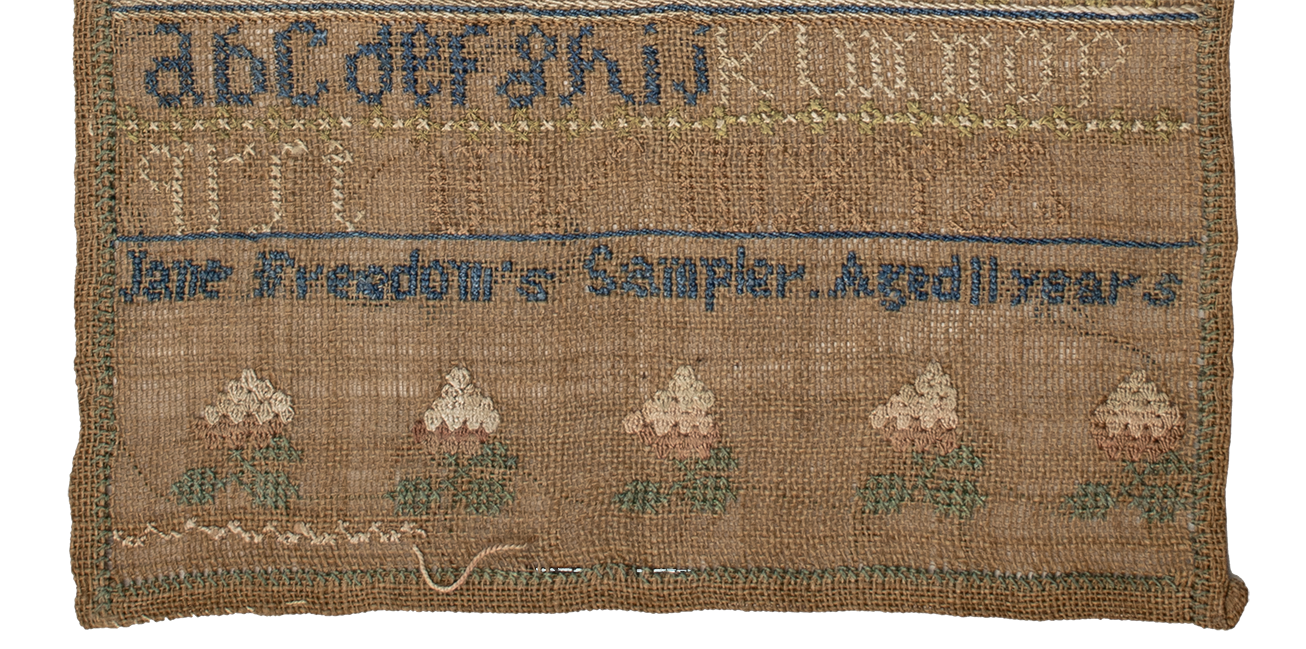
Jane was the daughter of Peter (1774/5-1837) and Bilhah Freedom (1783-1871), free Blacks who were married in 1812 and lived in Norfolk, Connecticut. She was born in 1819, the second of their three children. Peter Freedom and his family are recorded in the 1800, 1810, 1820 and 1830 US Census records, living in Norfolk.
Jane lived for only five years after she made her sampler; she died on February 26, 1835, and is buried at Center Cemetery in Norfolk, along with her parents. Record of the deaths of this family are included in Connecticut, U.S. Hale Collection of Cemetery Inscriptions … 1629-1934.
Her grandfather was Dolphin Freedom, an enslaved man owned by Capt. Abraham Camp of Norfolk. There is record in Durham, Connecticut of Dolphin’s marriage in 1764 to Zillah, an enslaved woman who was owned by Lieut. David Coe of Middletown, Connecticut. Their son, Peter, was Jane’s father.
An online article written by Ryan Bachman and published in “Norfolk Now,” September 1, 2015, provides much more information about the Freedom family. “Following the American Revolution, popular opinion in Connecticut began to turn against slavery. In 1784 the state legislature passed a policy of gradual emancipation, which legally required slaveholders to free only those enslaved people born after March 1 of that year. For individuals like Dolphin, Zillah and Peter, this meant that their freedom depended on the goodwill of their owners. In fact, Dolphin and his family were emancipated in 1788, and they chose an appropriate surname, “Freedom,” to celebrate their new status.”
Dolphin bought 3 acres of land on the Canaan Mountain road in 1792, and leased a lot on the Village Green for the cost of 20 pounds and one peppercorn, annually. He increased the 3-acre farm, ultimately to 40 acres, and it bordered a pond that came to be known as Dolphin Pond and remains so today.
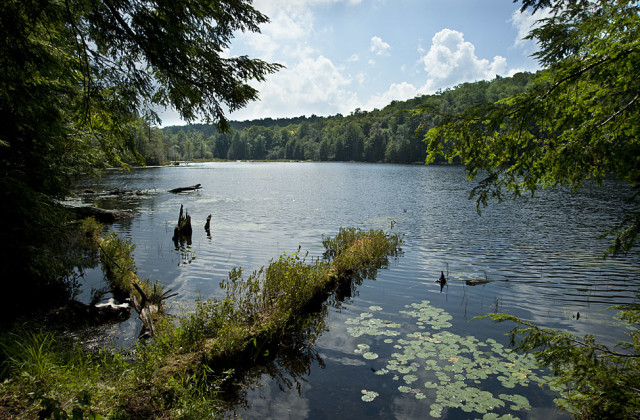
Photo of Dolphin Pond by Bruce Frisch, published on Norfolknow.org
Quoting again from Ryan Bachman, Dolphin, “had experienced life in the community as both the literal property of others and as a property owner himself.” Dolphin died in 1801, Zillah having died several months prior.
Further information about the family is included in 1744-1900 History of Norfolk Litchfield County, Connecticut by Theron Wilmot Crissey (Massachusetts Publishing Company, 1900). Quite wonderfully, History of Norfolk also includes a photo portrait of Aunt Bilhah, as she was called.
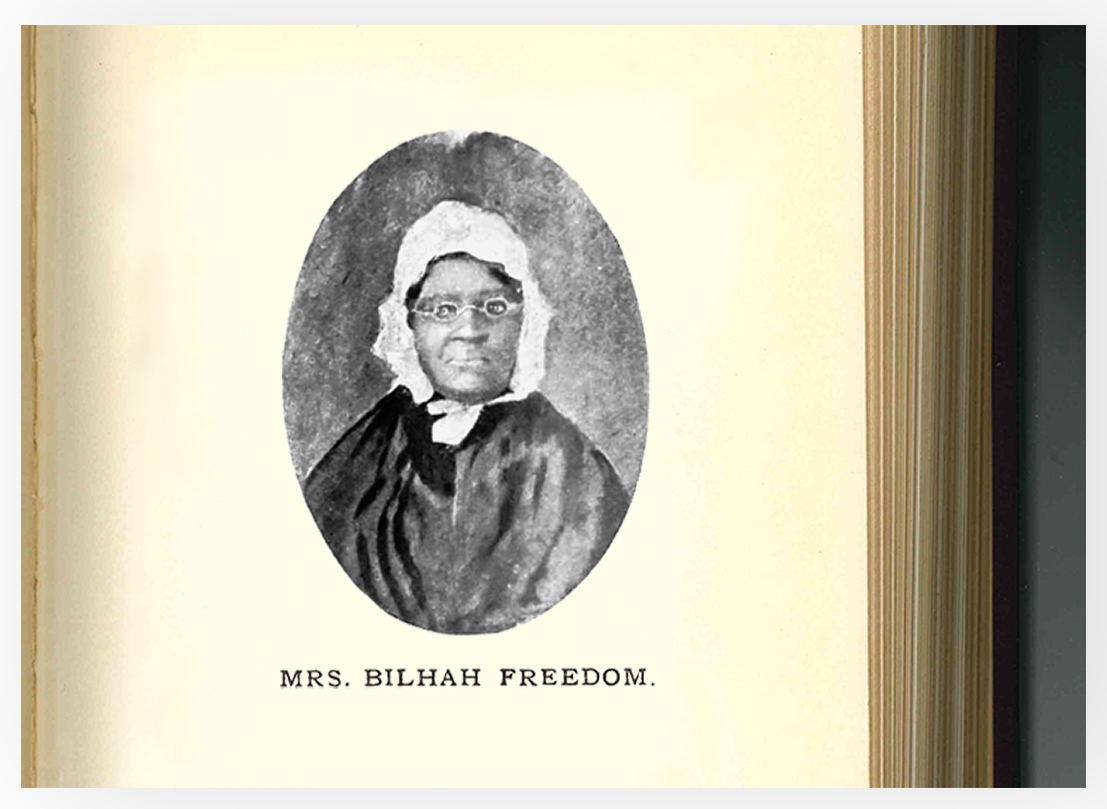
Portrait of Bilhah Freedom, Jane's mother, from 1744-1900 History of Norfolk Litchfield County, Connecticut by Theron Wilmot Crissey (1900)
|
She was, “famous as a cook, in great demand on Thanksgiving and at weddings, and known for the gingerbread which she would sell to the children in town.” As an older lady, Bilhah lived in a small house on Greenwoods Road that was built and used as a shoe shop. After Bilhah died on November 10, 1871, a marble gravestone was erected by townsfolk at her gravesite, next to Jane’s. It reads,
Greatly respected and beloved Of African and Princely descent Of queenly yet deferential demeanor Grateful and happy in her humble lot, tender and true.
|
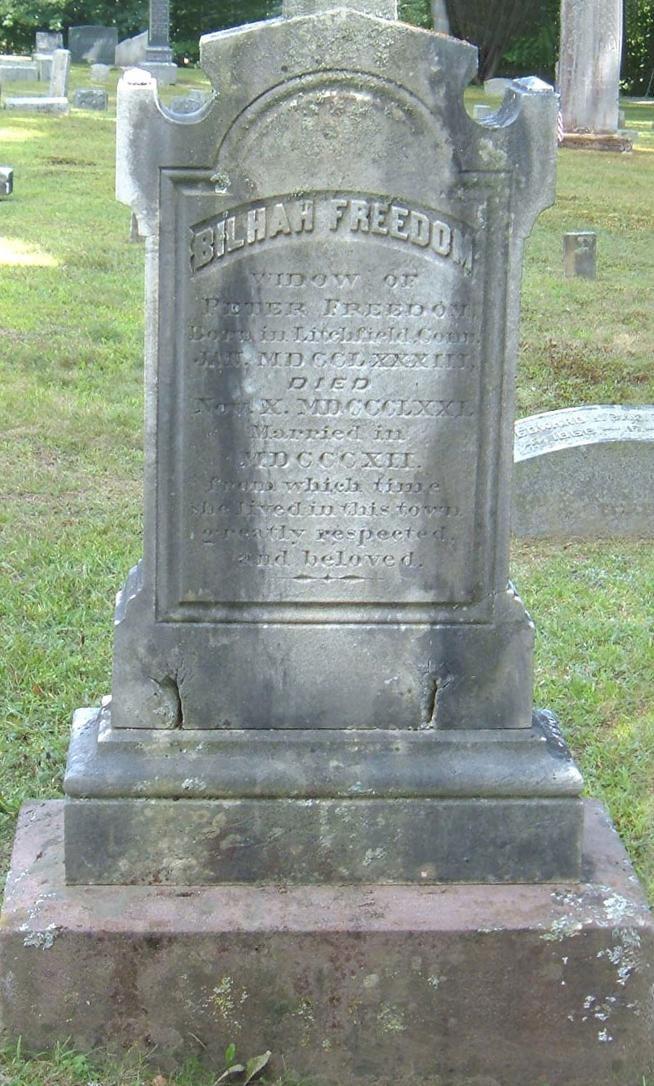
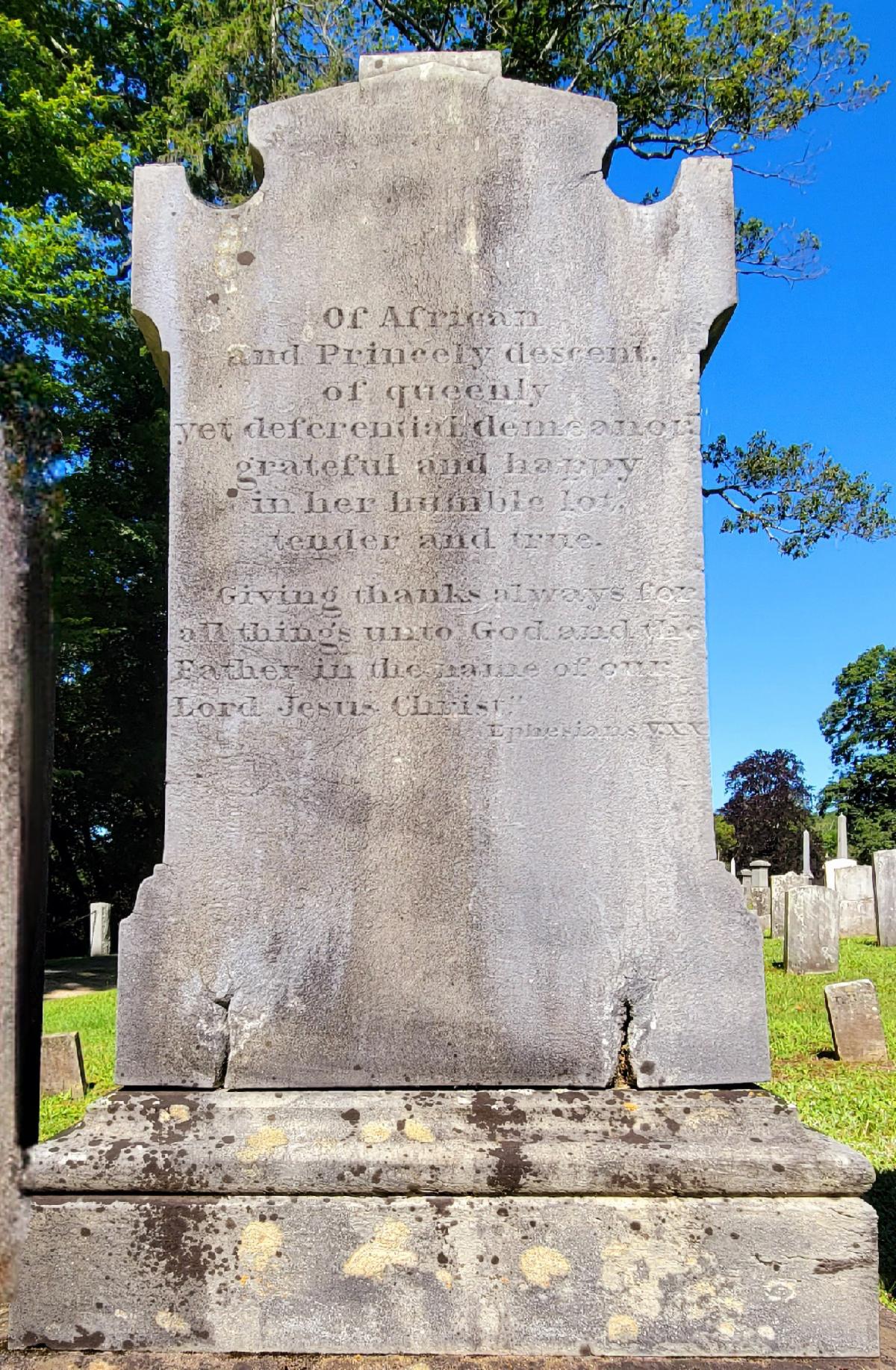
Photos of Bilhah Freedom's gravestone
Along with many other sources, there is information about the Connecticut history of the family in an article entitled, Of African and Princely descent: Norfolk’s Black History, Norfolk Historical Society, 2010
After Jane died, the sampler was owned by her brother, John Freedom (1823-1903). He married, as his second wife, Emma Louisa Jackson (1838-1917), in 1879. Her father was Rev. William Jackson (1818-1900), a Black Baptist minister and abolitionist social activist who extended his advocacy beyond words to action. In addition to pastoring successful churches, he was regarded as a leader in his Philadelphia, Pennsylvania and New Bedford, Massachusetts communities and participated in rescues of freedom seekers via the Underground Railroad. Further, he was a good friend of Frederick Douglass, and an officer and chaplain on the front during the Civil War.
The sampler then descended to John and Emma’s daughter, Flossie May Freedom. It remained in the family, ultimately to descendants who became stewards of Jane’s sampler and its story. Their goal was to see the sampler in the collection of a major American museum. It has recently been sold to the Bayou Bend Collection of the Museum of Fine Arts, Houston, where it has joined other significant objects made by people of color.
